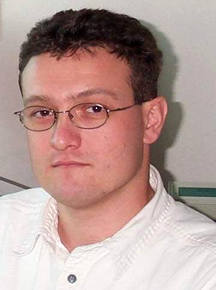Dr. Igor Jurisica
The ScienceDaily article IBM World Community Grid Squeezes Decades Of Cancer Research Into Two Years said
“Canadian researchers expect to accelerate the war on cancer by tapping into a global network of hundreds of thousands of people who volunteer their idle computer time to tackle some of the world’s most complex problems.The research team, led by Dr. Igor Jurisica at the Ontario Cancer Institute (OCI), and scientists at Princess Margaret Hospital and University Health Network, are the first from Canada to use the World Community Grid, a network of PCs and laptops with the power equivalent to one of the globe’s top five fastest supercomputers.
The team will use the World Community Grid to analyze the results of experiments on proteins using data collected by scientists at the Hauptman-Woodward Medical Research Institute in Buffalo, New York. This analysis would take conventional computer systems 162 years to complete. However, using World Community Grid, Dr. Jurisica anticipates the analysis could be finished in one to two years, and will provide researchers with a better way to study how proteins function, insight that could lead to the development of more effective cancer-fighting drugs.”
Igor Jurisica, Ph.D. is Canada Research Chair in Integrative Computational Biology and Senior Scientist, Ontario Cancer Institute, PMH/UHN, Toronto Medical Discovery Tower, Division of Signaling Biology, IBM Life Sciences Discovery Centre. He is also Associate Professor, Departments of Computer Science and Medical Biophysics, University of Toronto; Adjunct Professor, School of Computing, Queen’s University; Visiting Scientist, IBM Centre for Advance Studies, IBM Toronto Lab; and Editor-in-Chief of Cancer Informatics.
Igor focuses on cancer research. To significantly impact cancer research, novel therapeutic approaches for targeting metastatic disease, and diagnostic markers reflective of changes associated with disease onset that can detect early stage disease must be discovered. Better drugs must be rationally designed, and current drugs made more efficacious either by re-engineering or by information-based combination therapy.
To tackle these complex biological problems and impact high-throughput biology requires integrative computational biology, i.e., considering multiple data types, developing and applying diverse algorithms for heterogeneous data analysis, and visualization. Improved analysis and reasoning algorithms will in turn advance disease diagnosis by finding better markers, and improve patient management by supporting information-based medicine. Combined, this will 1) advance computational algorithms; 2) help to fathom cancer biology; and 3) lead to creating computational models of cancer.
His research focuses on integrative computational biology, and representation, analysis, and visualization of high dimensional data generated by high-throughput biology experiments, in the context of Cancer Informatics. Of particular interest is the use of comparative analysis for the mining of integrated different datasets such as protein-protein interaction, gene expression profiling, and high-throughput screens for protein crystallization.
Igor coauthored Knowledge Discovery in Proteomics, Molecular Profiling of Non-Small Cell Lung Cancer and Correlation with Disease-free Survival, High-Throughput Mapping of a Dynamic Signaling Network in Mammalian Cells, Online Predicted Human Interaction Database, Intelligent decision support for protein crystal growth, A Statistical Approach to Solving the EBL Utility Problem, Molecular Evidence of Placental Hypoxia in Preeclampsia, and CpG Island microarray probe sequences derived from a physical library are representative of CpG Islands annotated on the human genome, and coedited Cancer Informatics in the Post Genomic Era: Toward Information-Based Medicine. Read the full list of his publications!
Igor earned his Dipl. Ing. degree in Computer Science and Engineering from the Slovak Technical University in 1991, his M.Sc. in Computer Science from the University of Toronto in 1993, and his Ph.D. in Computer Science from the University of Toronto in 1998. He holds patent Dynamic semi-structured repository for mining software and software-related information.
